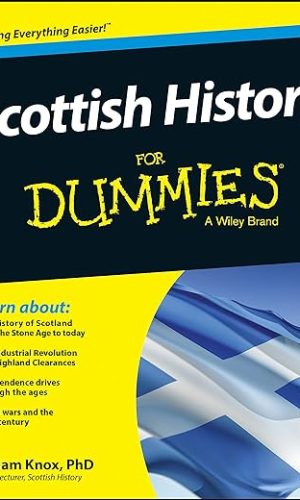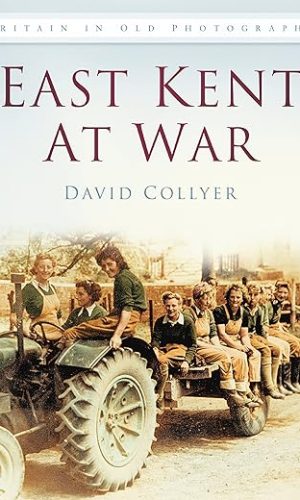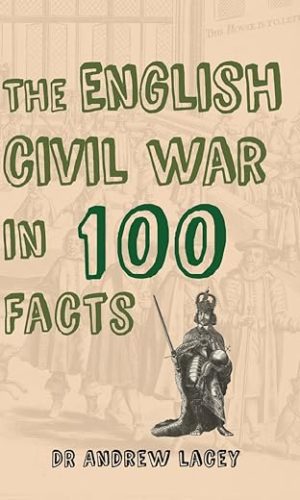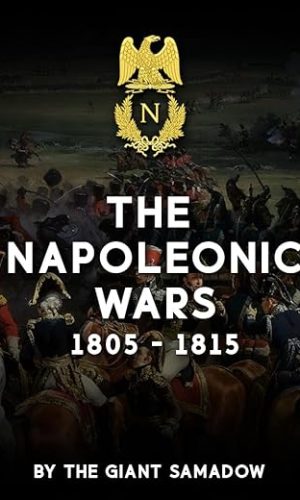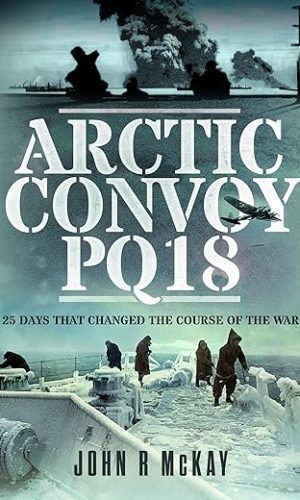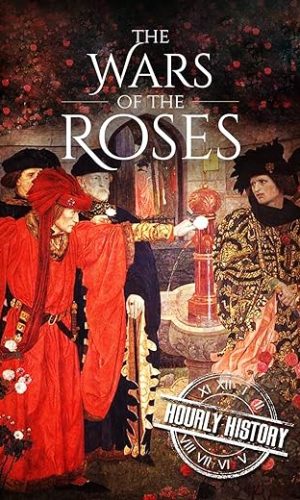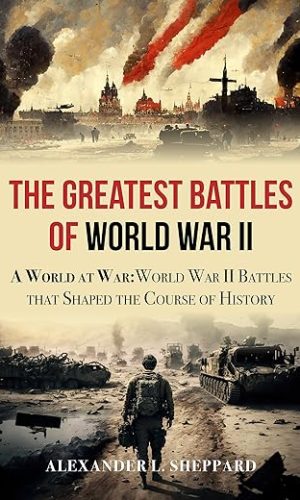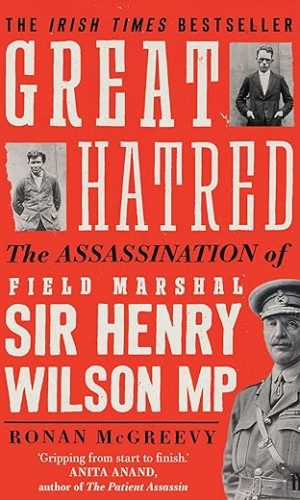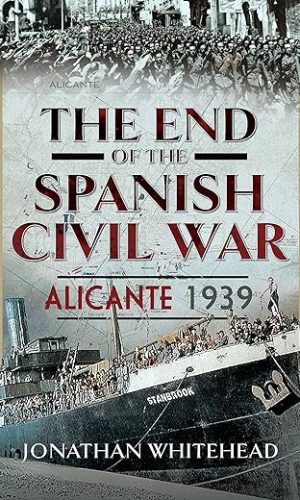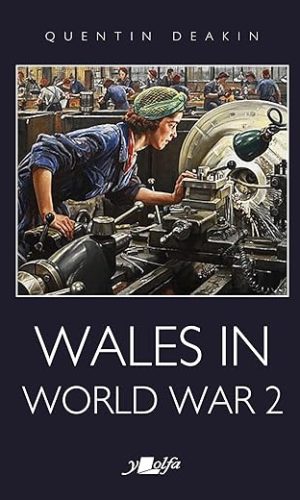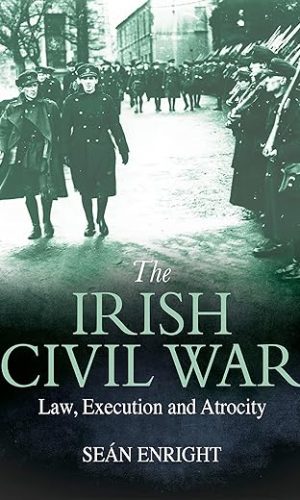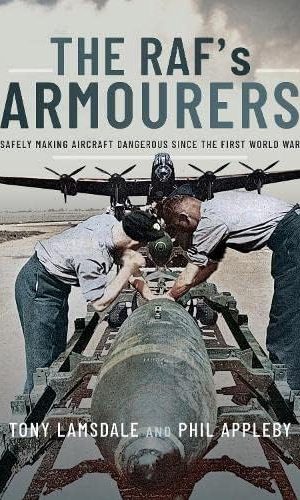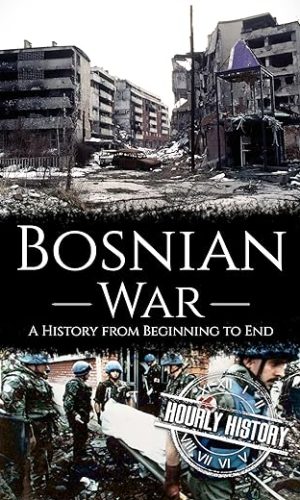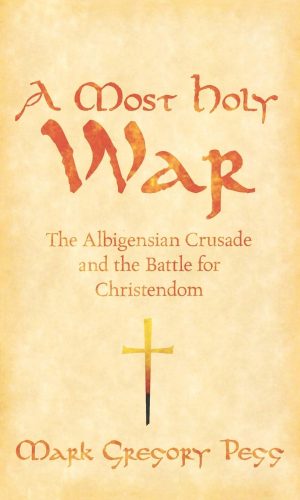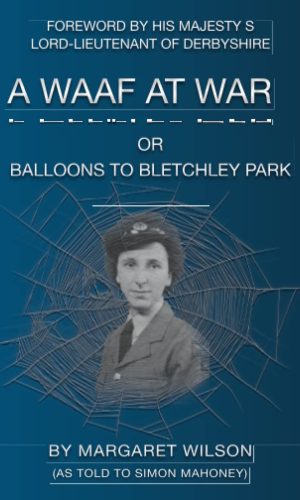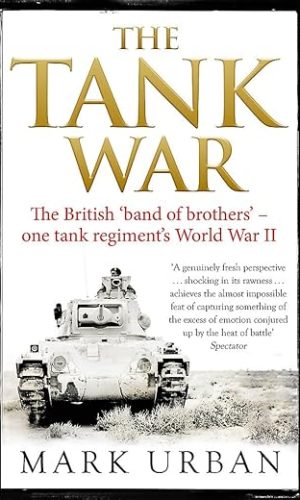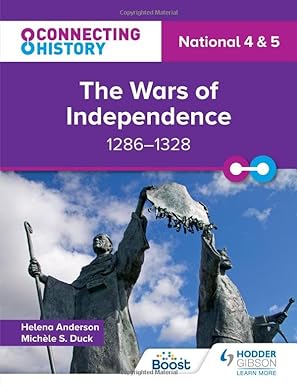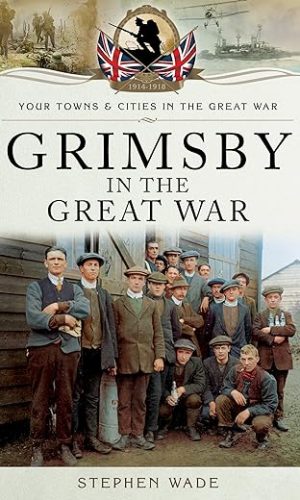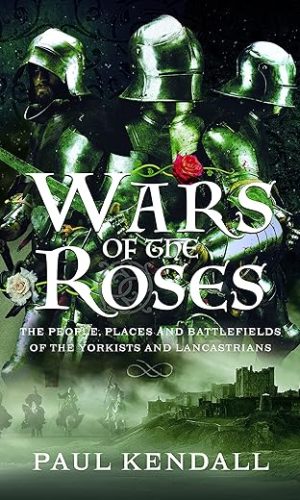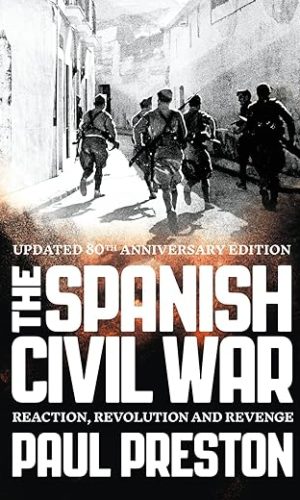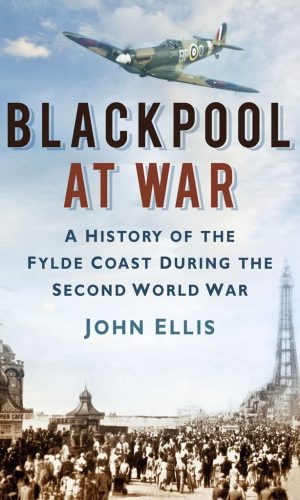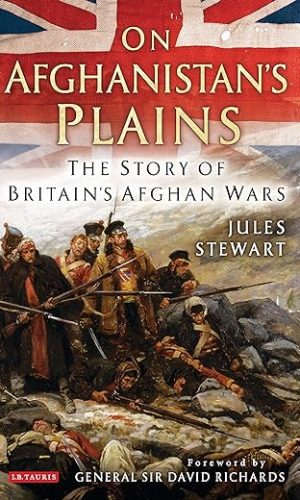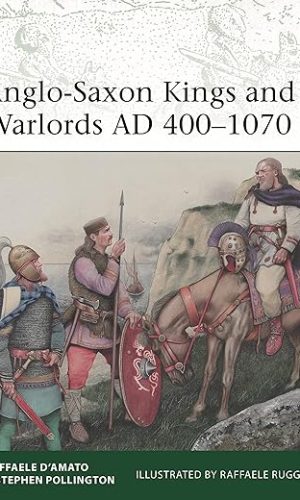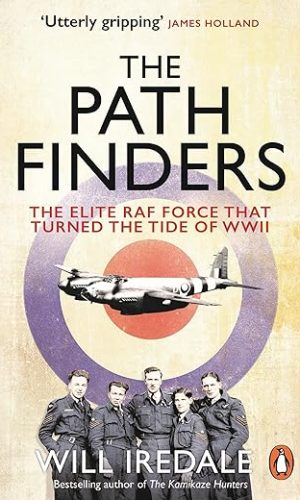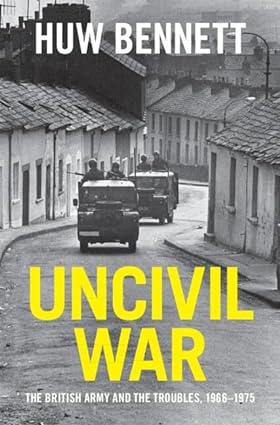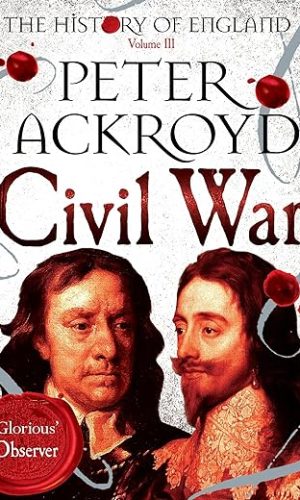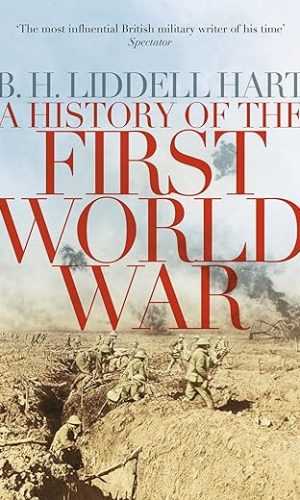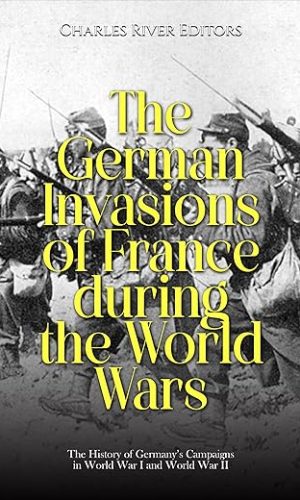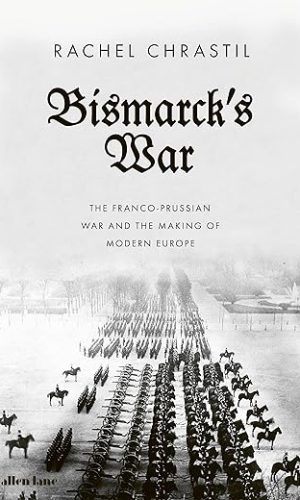Europe
-
Medical Services in the First World War (Shire Library)
The number of wounded in the First World War was unprecedented, and inadequate military planning presented the medical and voluntary community with huge and daunting challenges. Yet in the face of tremendous adversity both tackled their work with resourcefulness, courage and great humanity. This book is the illustrated story of those who risked their lives collecting casualties from the front line, of the various transport and treatment facilities at their disposal and of the eclectic mix of buildings in which the wounded were cared for at home, including many famous country houses. The vital part played by nurses, both in terms of essential medical duties and in boosting morale among the patients, is also examined, rounding off this perfect introduction to medical care in the First World War.Read more
£7.60£8.50 -
Imperial Persuaders: Images of Africa and Asia in British Advertising (Studies in Imperialism)
The first book to provide an historical survey of images of black people in advertising during the colonial period. Analyses the various conflicting, and changing ideologies of colonialism and racism in British advertising. Reveals the historical and production context of many well known advertising icons, as well as the specific commercial interests that various companies’ images projected. Provides a chronological understanding of changing colonial ideologies in relation to advertising, while each chapter explores images produced to sell specific products, such as soap, cocoa, tea and tobacco. — .Read more
£48.00 -
Scottish History For Dummies
Explore the fascinating history of Scotland in an easy-to-read guide Want to discover how a small country on the edge of Northern Europe packs an almighty historical punch? Scottish History For Dummies is your guide to the story of Scotland and its place within the historical narratives of Britain, Europe and the rest of the world. You’ll find out how Scotland rose from the ashes to forge its own destiny, understand the impact of Scottish historical figures such as William Wallace, Robert the Bruce and David Hume and be introduced to the wonderful world of Celtic religion, architecture and monuments. History can help us make connections with people and events, and it gives us an understanding of why the world is like it is today. Scottish History For Dummies pulls back the curtain on how the story of Scotland has shaped the world far beyond its borders. From its turbulent past to the present day, this informative guide sheds a new and timely light on the story of Scotland and its people. Dig into a wealth of fascinating facts on the Stone, Bronze and Iron ages Get to know how Scotland was built into an industrial economy by inventors, explorers and missionaries Discover the impact of the world wars on Scotland and how the country has responded to challenges created by them Find up-to-the-minute information on Scotland’s referendum on independence If you’re a lifelong learner looking for a fun, factual exploration of the grand scope of Scotland or a traveler wanting to make the most of your trip to this captivating country, Scottish History For Dummies has you covered.Read more
£15.60£18.00Scottish History For Dummies
£15.60£18.00 -
East Kent at War: Britain in Old Photographs
During the Second World War, East Kent was at the forefront of the defence of the United Kingdom. In 1940 the ports of Dover, Ramsgate, Folkestone and Margate took part in the Dunkirk evacuation, while airfields such as Manston, Hawkinge and Lympne were active in refuelling aircraft involved in the Battle of Britain.
It was also from Dover that the first steps for D-Day were initiated, with commando raids on French beaches from Royal Navy motor launches. German signals were monitored and subsequently jammed by a series of experimental units. Balloons launched from Kingsdown carried leaflets to enemy territory, while others defended harbours and factories from dive bombers.
Throughout the remainder of the war, including the defence against the V1 flying bomb attacks of the summer of 1944 and the supply of both men and material to the allies as they advanced through Europe, East Kent played a vital role.
Read more
£9.70£14.20East Kent at War: Britain in Old Photographs
£9.70£14.20 -
The English Civil War in 100 Facts
The English Civil War pitted Parliament against the Crown following a breakdown in their relationship, ultimately caused by a struggle over power, religion and control. The Civil War split the country and resulted in the execution of Charles I and the exile of his son, and the English monarchy was replaced first by the Commonwealth of England and then the Protectorate. Oliver Cromwell dominated the politics of the new rule and still divides opinion today, with some seeing him as a brutal dictator and others seeing him as a hero of liberty. The English Civil War in 100 Facts examines the twenty years of intermittent warfare, covering the first, second and third wars, from the initial conflict with Charles I to the fight of Charles II’s supporters with the Rump Parliament. Dr Andrew Lacey guides us through some of the key figures and their stories as well as some of the key battles and politics in this period that drastically altered the structure of English rule.Read more
£7.10£8.50The English Civil War in 100 Facts
£7.10£8.50 -
The Napoleonic Wars (1805 – 1815)
The Napoleonic Wars (1805 – 1815) were an epoch of unprecedented upheaval and destruction that reshaped the landscape of the history of ancient France and the broader European continent. In this comprehensive book, we embark on a captivating journey through this tumultuous decade, offering a detailed exploration of the triumphs and tragedies that marked Napoleon Bonaparte’s reign as the self-crowned Emperor of the French.
From the brilliance of Napoleon’s early victories, including his masterpiece at Austerlitz in 1805 and the smashing of Prussia at Jena in 1806, to the catastrophic invasion of Russia in 1812 and the bloodiest day at Borodino, we traverse the peaks and valleys of his fortunes. This narrative takes us through the horrors of the French occupation of Spain and Portugal, the great struggles of 1813, and Napoleon’s doomed defense of Paris in 1814. Along this historical voyage, we encounter moments of military genius and fatal blunders that left an indelible mark on the history of ancient France.
The climax of this narrative occurs in 1815, where we bear witness to history’s most renowned generals meeting on the battlefield for the first and only time: Napoleon Bonaparte, Emperor of the French, and the Duke of Wellington. The epic and brutal Battle of Waterloo unfolds, ultimately determining the fate of Europe.
This book provides a comprehensive chronicle of the entire span of the Napoleonic Wars, from the zenith of Napoleon’s power in 1805 to his final defeat at Waterloo in 1815. It is a compelling journey through one of the most captivating and tumultuous periods in history, interwoven with the grand campaigns, dramatic battles, and the rise and fall of an extraordinary leader, all set against the backdrop of the history of ancient France.
Order your copy now!
Read more
£4.70 -
The Hundred Years War: 1337–1453 (Essential Histories)
An illustrated overview of the Hundred Years War, the longest-running and the most significant conflict in western Europe in the later Middle Ages.There can be no doubt that military conflict between France and England dominated European history in the 14th and 15th centuries. The Hundred Years War is of considerable interest both because of its duration and the number of theatres in which it was fought.
Drawing on the latest research for this new edition, Hundred Years War expert Professor Anne Curry examines how the war can reveal much about the changing nature of warfare: the rise of infantry and the demise of the knight; the impact of increased use of gunpowder and the effect of the war on generations of people.
Updated and revised for the new edition, with full-colour maps and 50 new images, this illustrated introduction provides an important reference resource for the academic or student reader as well as those with a general interest in late medieval warfare.
Read more
£9.50£12.30 -
Arctic Convoy PQ18: 25 Days That Changed the Course of the War
This superbly researched book tells the story of one of the most significant maritime operations of the Second World War. The importance of the Arctic convoys providing the Soviets with the necessary equipment needed to win the war on the Eastern Front has too often been underestimated. This book puts that right. Following PQ17, the worst Allied maritime disaster of the Second World War, it was imperative that PQ18 got through. So when the convoy left Loch Ewe on 2 September 1942 the stakes could not have been higher. The Battle of Stalingrad was hanging in the balance. Had the convoy suffered unacceptable shipping and war supply losses, the Arctic route would have had to be suspended with potentially war-changing consequences not just for the Soviets but the whole Allied war effort. Consequently, as this work vividly describes, it was both the most heavily defended and the most heavily attacked convoy of the whole war. The Author draws on contemporaneous accounts of the combatants from both sides including U-boat crews, airmen and, of course, the crews of the warships and merchantmen. Offering newly discovered facts about the convoy’s turbulent passage, this book is a valuable addition to the history of the campaign which will appeal to historians and laymen alike.Read more
£16.70£20.90 -
Wars of the Roses: A History From Beginning to End (Medieval History)
Wars of the Roses
* * *Download for FREE on Kindle Unlimited + Free BONUS Inside!* * *
Read On Your Computer, MAC, Smartphone, Kindle Reader, iPad, or Tablet.
The Wars of the Roses were a series of civil wars in England fought between the House of Lancaster and the House of York between 1455 and 1485. Over a thirty-year period, England had five rulers, three of whom were killed or executed. Power changed hands on even more occasions as an ineffective king, Henry VI, was subject to mental breakdowns and protectors of the realm were regularly appointed to rule during these episodes, thereby disaffecting Henry’s ambitious queen, Margaret of Anjou. Though the battles fought were limited in scope, one of these, the Battle of Towton, is considered the bloodiest battle ever fought on English soil. The nearby river was described as running red with the blood of some 38,000 soldiers who lost their lives that day.
Inside you will read about…
✓ Prelude to War: A House Divided
✓ A Mad Monarch and His Quarrelsome Relatives
✓ The Ultimate Family Feud
✓ The Final Battle
✓ The Tudor Dynasty
And much more!By the end of the Wars, a new dynasty—the Tudor Dynasty—was born, the powers of the nobility were significantly diminished, and the system of feudalism was all but eradicated. The monarchy was strengthened, and the royal line of succession was secured for the Tudor line. As family feuds go, the Wars of the Roses were historically significant in changing the trajectory of power in England. This book tells the compelling story of this tumultuous period in English history in succinct, yet informative detail that is both educational and entertaining.
Read more
£1.90 -
The Greatest Battles of World War II: A World at War:World War II Battles that Shaped the Course of History
Harrowing stories of Auschwitz, Pearl Harbor, and D-Day continue to live on, but this unbridled look at The Greatest Battles of World War II explores the lesser-known monstrosities unlike other World War II books.
WWII did more than just change the fate of world history—in just six years, every corner of the globe became involved in some of the most violent crimes against humanity to ever occur.
From the Battle of Stalingrad to the Battle of Midway, each of the World War 2 battles directly influenced the trajectory of the war and the world as we know it.
The strength of every country’s military, intelligence, and political powers were put to the test in a war that gruesomely claimed an estimated 60 million lives, including casualties.
Whether you have a great fascination for history, or you’re just looking to uncover new facts, The Greatest Battles of World War II paints a picture of the key battles of World War 2 and the impact of each on the course of the war and future of global affairs.
Despite the relatively short war, there are mountains of heinous yet hugely impactful events that took place—battles to war crimes alike.
You may already know about the evils of concentration camps and terrible murders of innocent people. Now, it’s time to take a look at what the history books may not have taught you.
Inside The Greatest Battles of World War II, you will discover:
- every major event and battle from the invasion of Poland and Dunkirk to Operation Overlord and the fateful day of June 6, 1944, when Nazi efforts all came crashing down.
- the intricately planned military and intelligence efforts on the part of the US and its allies, which were key to the victory and end of the war.
- what the fate of the war might have been if these battles had gone differently, and how even the minutest details enabled the takedown of Hitler and the Nazi Party.
- how each and every event contributed to the drawn-out war, the eventual victory of the Allied Powers, and their far-reaching impact on the world, politics, and modern history.
…plus key facts of every battle and military move for a well-rounded WWII education without the distracting and unnecessary details.
The impact that World War II had on global military affairs, international politics, and national security is everlasting, and the battles of World War II played a crucial role in its influence.
If you’re ready to discover World War II with clear detail and unfiltered historical accuracy, then this book is written specifically for you.
Uncover the raw truth of The Greatest Battles of World War II and learn the full story!
Read more
£3.90 -
Great Hatred: The Assassination of Field Marshal Sir Henry Wilson MP
THE IRISH TOP 10 BESTSELLER
A gripping investigation into one of Irish history’s greatest mysteries, Great Hatred reveals the true story behind one of the most significant political assassinations to ever have been committed on British soil.
‘Heart-stopping . . . The book is both forensic and a page-turner, and ultimately deeply tragic, for Ireland as much as for the murder victim.’
MICHAEL PORTILLO‘Gripping from start to finish. McGreevy turns a forensic mind to a political assassination that changed the course of history, uncovering a trove of unseen evidence in the process.’
ANITA ANAND, author of The Patient Assassin‘Invaluable.’ IRISH TIMES
‘Intelligent and insightful.’ IRISH INDEPENDENT
On 22 June 1922, Sir Henry Wilson – the former head of the British army and one of those credited with winning the First World War – was shot and killed by two veterans of that war turned IRA members in what was the most significant political murder to have taken place on British soil for more than a century. His assassins were well-educated and pious men. One had lost a leg during the Battle of Passchendaele. Shocking British society to the core, the shooting caused consternation in the government and almost restarted the conflict between Britain and Ireland that had ended with the Anglo-Irish Treaty just five months earlier. Wilson’s assassination triggered the Irish Civil War, which cast the darkest of shadows over the new Irish State.
Who ordered the killing? Why did two English-born Irish nationalists kill an Irish-born British imperialist? What was Wilson’s role in the Northern Ireland government and the violence which matched the intensity of the Troubles fifty years later? Why would Michael Collins, who risked his life to sign a peace treaty with Great Britain, want one of its most famous soldiers dead, and how did the Wilson assassination lead to Collins’ tragic death in an ambush two months later?
Drawing upon newly released archival material and never-before-seen documentation, Great Hatred is a revelatory work that sheds light on a moment that changed the course of Irish and British history for ever.
‘McGreevy provides more than the anatomy of a political murder; in reconstructing this era of blood, poverty and wartime trauma, he also gives full expression to the terrible forces that WB Yeats once called the “fanatic heart” and the “great hatred”.’
THE TIMES‘Thoughtful and well-researched . . . an important and valuable addition to the library of the Irish Revolution.’
PROFESSOR DIARMAID FERRITER, University College DublinRead more
£7.30£10.40 -
The End of the Spanish Civil War: Alicante 1939
The Spanish Civil War ended in Alicante. After Catalonia fell to the Hitler and Mussolini backed military rebellion of Franco’s Nationalists at the outset of 1939, the legitimate Republican government of Dr Negrín was faced with a choice between apparently futile resistance or unconditional surrender to the triumphant Nationalists. Choosing the path of continued defiance until they could force concessions or at least implement a mass evacuation of those Republicans most at risk in Franco’s new Spain, the government withdrew to Elda in the province of Alicante. However, their plans were thwarted by a new rebellion of Republican officers, led by Colonel Segismundo Casado, who resented Negrín’s reliance on the Communist Party and the USSR and believed themselves better equipped to negotiate a peace settlement with Franco. They were misguided, Franco had no wish, and ultimately no need to negotiate. Meanwhile, faced with the imminent risk of arrest by the new junta, the Prime Minister and his cabinet were forced to abandon Spain from the tiny aerodrome of Monóvar. A relatively quiet port on the eastern, Mediterranean coast of Spain, Alicante had remained at some distance from the frontlines throughout the fighting on the ground, but swiftly became a target for Italian bombers operating out of bases in the Balearic Islands. In May 1938, at the height of the air offensive, Italian bombers attacked the marketplace, causing a massacre as tragic as the events in Guernica, yet largely ignored by historians. As the war drew towards its conclusion, Alicante became increasingly significant as attention focused on the plight of the defeated Republicans. In the second half of March 1939, the fronts collapsed, and Madrid finally fell to the insurgents. Tens of thousands of refugees descended on Alicante in the forlorn hope of rescue by French and British ships that had been promised but which failed to materialise. Amid the tragedy, as the British and French governments declined to engage in any humanitarian intervention that might offend Hitler and Mussolini, a single hero emerged; Captain Archibald Dickson, the Welsh master of the Stanbrook who ditched his cargo and transported 3,000 refugees to safety in North Africa. On 30 March 1939, Franco’s vanguard, the Italian ‘Volunteer’ Corps under General Gastone Gambara, occupied a town already under the control of the Fifth Column. Two days later the Generalísimo issued a communiqué from his headquarters in Burgos, declaring that the war was over. The bulk of the Republicans surrounded and captured in the port were marched to an improvised internment camp, known as the Campo de los Almendros (Field of Almond Trees). They were then transferred to the infamous concentration camp at Albatera to share the fate of defeated Republicans across Spain and to undergo the programme of ideological cleansing of the new fascist authorities.Read more
£20.00£23.80The End of the Spanish Civil War: Alicante 1939
£20.00£23.80 -
Wales in World War 2: Wales in World War II
The most comprehensive study to date of Wales’ role in the British response to World War II, and the impact of the war on Wales itself. Wales was vital to the war effort, from military training to public entertainment, from hosting several of Britain’s most secretive weapons programs to housing 110,000 child evacuees, from the war economy to food security. The devastating 1940 blitz in the cities of the south is well known, but the book covers every region comprehensively. Politicians, civil servants and civilian volunteers; miners, steelworkers, farmers, factory workers and entertainers; local children, host families and evacuees; new recruits, soldiers, prisoners of war and pacifists – the book looks at the experience of every part of the population present in Wales during the war. Long-standing tensions between the Welsh people and the English authorities meant for a sometimes strained relationship, affecting the role of film, radio and the arts in propaganda directed to audiences in the home. The book also looks at the legacy of the conflict on Wales after the war.A well-researched, well-written account and analysis drawing on a wide range of sources. It provides international context but also the experiences of regions, communities and individuals. A major advance in writing on this still rather neglected topic. – Dr Neil Evans, Honorary Research Fellow, Bangor University
World War II was a defining moment in the history and the lives of many Welsh people. Yet it has been relatively neglected by historians of Wales. This book sets out to correct that omission with a well-researched account of a war that changed the very course of the history of the nation. – Professor Martin Johnes, Dept of History, Heritage and Classics, Swansea University
Comprehensively researched, with an eloquent yet easy-to-read narrative, this book is highly recommended for anyone wishing to learn about a neglected piece of twentieth-century history: the experiences of World War 2 in Wales. – Kate Sullivan, Project Coordinator, ‘People’s Voices in a People’s War: Aberystwyth, 1938-1945
Read more
£13.50£14.20Wales in World War 2: Wales in World War II
£13.50£14.20 -
The Irish Civil War: Law, Execution and Atrocity
During the Irish Civil War eighty-three executions were carried out by the National Army of the emerging Free State government, including four prisoners not tried or convicted of any charge. After the war the trial records were destroyed and the execution policy became a bitter memory that was rarely discussed. In this groundbreaking work, Seán Enright examines how a climate emerged in which prisoners could be tried by rudimentary military courts and then executed, and how so many other prisoners were killed without any trial at all.
The government of the emerging state relied on the National Army to fight the war and implement policy, but the National Army was new and lacked discipline. More than 125 further prisoners were killed in the custody of the state; shot at the point of capture or killed in custody. ‘Shot while trying to escape’ became an all too familiar press release. Seventeen prisoners were killed in the Kerry landmine massacres alone.
In the struggle to survive, the new state turned a blind eye and the rule of law simply unravelled. Featuring new material from the Irish Military Archives, The Irish Civil War: Law, Execution and Atrocity examines the dark legacy of this chaotic and bitter conflict.
Read more
£10.90£12.30The Irish Civil War: Law, Execution and Atrocity
£10.90£12.30 -
The RAF’s Armourers: Safely Making Aircraft Dangerous Since the First World War
It is said that one of the earliest trades in the world is that of the Armourer. Historically, it is a profession dated slightly after prostitution, but well before banking! Since the birth of the Royal Flying Corps in 1912 through to the modern Royal Air Force, the role of the Armourer has been pivotal. Not for nothing did the founder of the RAF, Lord Trenchard, once declare: The Armourer – without him there is no need for an air force.’ In the years since the need for RAF Armourers was first recognised, it has been a role that has evolved with the times. What has remained constant, however, is the fact that it is still a fascinating and potentially dangerous trade with many different branches and specialisms. In this book the authors, one of whom, Tony Lamsdale, is himself a former RAF Armourer, reveal the previously untold story of how the trade has adapted to the most modern of military machines, the aircraft. The authors look at the shared history of the Armourer and the RAF through the eyes of those who served. These veterans’ stories span decades, and their first-hand accounts and insights into conflict and peace-time operations demonstrate the qualities and characteristics that make Armourers unique. The book starts with a brief history of the Armourer, then before capturing the adventures and exploits of RAF Armourers from the Second World War and on into the Cold War. The dangerous duties of the Armourers on deployment in such places as the Falklands, Iran, Iraq or Afghanistan are all explored. There is also the question of having to learn of bomb dumps, the use of small arms and the unique world of the Armourer with its own peculiar language and the camaraderie of the crew room. With each chapter brought to life through personal anecdotes and shared experiences, this book provides an insight into an utterly essential role which has remained largely hidden – until now.Read more
£20.30£26.60 -
Bosnian War: A History from Beginning to End
Discover the tragic history of the Bosnian War…
Free BONUS Inside!In the annals of modern history, few episodes cast a darker shadow than the Bosnian War. It was during this war that the world became acquainted with the chilling term “ethnic cleansing,” a phrase that encapsulates the unspeakable acts of mass deportation, imprisonment, rape, and murder perpetrated against civilians based on their religious and ethnic identities. During the Bosnian War, the media bombarded the global audience with nightmarish images of brutal massacres, mass graves, and undeniable evidence of heinous crimes against humanity. Yet, for many observers, the roots and reasons behind this war remain enigmatic and elusive.
Yugoslavia was a nation deeply fractured by ethnic and religious divisions. The iron grip of Josip Broz Tito’s communist dictatorship, established after World War II, momentarily silenced these tensions, but upon Tito’s death and the subsequent disintegration of the communist regime in Yugoslavia, these dormant fissures erupted once more, giving rise to a period of anarchy, violence, and conflict known as the Yugoslav Wars. The Bosnian War was not a single, isolated conflict but rather formed part of this wider series of wars. To unravel the complexities of the Bosnian War, one must delve into the intricate web of connections with these other conflicts and the fragmentation of Yugoslavia itself. Even then, it is essential to recognize that the root causes of this war still linger.
This is the story of the complex, horrifying, and brutal human tragedy that became known as the Bosnian War.
Discover a plethora of topics such as
- World War II: The Creation of Socialist Yugoslavia
- Rise of Nationalism in Yugoslavia
- Violence Begins
- Bosnian Genocide: Ethnic Cleansing
- Srebrenica Massacre
- International Intervention
- And much more!
So if you want a concise and informative book on the Bosnian War, simply scroll up and click the “Buy now” button for instant access!
Read more
£1.90 -
A Most Holy War: The Albigensian Crusade and the Battle for Christendom (Pivotal Moments in World History)
The Albigensian Crusade, the first in which Christians were promised salvation for killing other Christians, lasted twenty bloody years–a long savage war for the soul of Christendom. In A Most Holy War, historian Mark Pegg has produced a swift-moving, gripping narrative of this horrific crusade. Pegg draws in part on thousands of testimonies collected by inquisitors in the years 1235 to 1245, accounts of ordinary men and women remembering what it was like to live through such brutal times. In responding to heresy with a holy genocidal war, Innocent III fundamentally changed how Western civilization dealt with individuals accused of corrupting society. This change, Pegg argues, led directly to the creation of the inquisition, the rise of an anti-Semitism, and even the holy violence of the Reconquista in Spain.“A bold, erudite, engaging, and superbly written study of what has long been one of the most central topics in medieval and Mediterranean history.”
–Teofilo F. Ruiz, Professor of History, UCLARead more
£11.40 -
A WAAF AT WAR: OR BALLOONS TO BLETCHLEY PARK
This is Margaret’s story, an ordinary young woman from the shires who voluntarily joined the war against Germany and the Nazi Party.
It is a story that takes us from a small rural coal mining town to the sheer hard graft of handling highly hazardous barrage balloons, a sojourn at an operational bomber base.
From there we are taken into the almost monastic world of signals intelligence collection at Bletchley Park. Not for her the interminable copying of sacred texts, rather the transcribing of enemy signal traffic.
To this day Margaret will not talk about her work at Bletchley Park in any detail. This has caused frustration amongst historians, including Bletchley Park itself.
Winston Churchill described the young women at Bletchley as ‘the geese that laid the golden eggs and never cackled.’
And so it has proved.
Read more
£7.10 -
The Tank War: The British Band of Brothers – One Tank Regiment’s World War II
From the evacuation of France in 1940 to the final dash to Hamburg in 1945, the 5th Royal Tank Regiment were on the front line throughout the Second World War. Theirs was a war that saw them serve in Africa as part of the Desert Rats, before returning to Europe for the Normandy landings. Wherever they went, the notoriety of the ‘Filthy Fifth’ grew – they revelled in their reputation for fighting by their own rules.
The Tank War explains how Britain, having lost its advantage in tank warfare by 1939, regained ground through shifts in tactics and leadership methods, as well as the daring and bravery of the crews themselves. Overturning the received wisdom of much Second World War history, Mark Urban shows how the tank regiments’ advances were the equal of the feats of the German Panzer divisions.
Drawing on a wealth of new material, from interviews with surviving soldiers to rarely seen archive material, this is an unflinchingly honest, unsentimental and often brutal account of the 5th RTR’s wartime experiences. Capturing the characters in the crews and exploring the strategy behind their success, The Tank War is not just the story of an battle hardened unit, but something more extraordinary: the triumph of ordinary men, against long odds, in the darkest of times.
Read more
£11.40£12.30 -
Connecting History: National 4 & 5 The Wars of Independence, 1286–1328
Exam board: SQA
Level: National 4 & 5
Subject: History
First teaching: September 2017
First assessment: Summer 2018Fresh stories, fresh scholarship and a fresh structure. Connecting History informs and empowers tomorrow’s citizens, today.
Bringing together lesser-told narratives, academic excellence, accessibility and a sharp focus on assessment success, this series provides a rich, relevant and representative History curriculum.
> Connect the past to the present. Overarching themes of social justice, equality, change and power help students to understand the importance of events and issues, then and now.
> Go far beyond other resources. With respect and aspiration for the transformative power of History, this series incorporates the latest research, challenges old interpretations and embeds diverse experiences throughout.
> Follow a clear and consistent structure. The key issues in the N5 specification form the chapters in each book, and the content descriptors are subheadings within the chapters. Finding the information that you need has never been easier.
> Meet the demands of the assessments. Connecting History develops the knowledge and skills for success, with appropriate breadth, depth and pace. The narrative and sources take centre stage and the authors model the process of answering questions effectively through that narrative, ensuring that students know all the key points that they need to. Activities throughout each chapter consolidate and extend learning.
> Benefit from pedagogic and academic expertise. The authors are highly experienced teachers and examiners who know how to spark critical curiosity in students. Each book has been rigorously reviewed by an academic from the University of Glasgow, so you can rest assured that the content is accurate and up to date.
Read more
£16.10 -
Grimsby in the Great War (Your Towns and Cities in the Great War)
An account of the Home Front experience in Grimsby.Read more
£7.20£9.50 -
Wars of the Roses: The People, Places and Battlefields of the Yorkists and Lancastrians
The Wars of the Roses, which saw England and Wales ravaged by warfare for three decades and dynasties rise and fall, decimated the nobility of an entire generation, and saw the rise of the merchant class, the decline of medieval feudalism and opened the country to the enlightened ideals of the Renaissance. Such has been its lasting effects the red and white rose of the Tudors is still a national symbol. This book is an exploration of the buildings, monuments, towns and battlefields of that turbulent era across both England and Wales – places that can still be visited and experienced today. The stories of the great battles of St Albans, Stoke Field, Wakefield, Townton, Barnet, Tewksbury and, of course, Bosworth, are told along with beautiful photographs to help guide the reader round these important sites, as well as the dozens of smaller engagements where the supporters of the Houses of York and Lancaster fought and died. Here are castles and manor houses galore, all of which played their part in this protracted struggle for the throne of England, such as Richard of York’s imposing powerbase of Lulow Castle and the magnificent Tudor stronghold of Bamburg. These are compared with the scant remains of Fotheringhay Castle, the birthplace of Richard III – the man whose remains were so dramatically uncovered in Leicester – and Micklegate Bar, York, was where Richard’s head was placed on a spike. We see the Clocktower of St Albans and ‘Gabriel’ the bell that was rung in 1455 alerting of the Yorkist advance, as well as the Tower of London where Henry VI met his death and the possible burial place of the two princes. These, and scores of other places, monuments, plaques, buildings and battlegrounds, represent not only a journey across England and Wales, but a journey back in time to the bloody conflict that was the War of the Roses.Read more
£20.00£23.80 -
The Spanish Civil War: Reaction, Revolution and Revenge
UPDATED EDITION
A rousing and full-blooded account of the Spanish Civil War and the rise to prominence of General Franco.No modern conflict has inflamed the passions of both civilians and intellectuals as much as the Spanish Civil War of 1936–39. Burned into our collective historical consciousness, it not only prefigured the imminent Second World War but also ushered in a new and horrific form of warfare that would come to define the twentieth century. At the same time it echoed the revolutionary aspirations of millions of Europeans and Americans after the painful years of the Great Depression.
In this authoritative history, Paul Preston vividly recounts the political ideals and military horrors of the Spanish Civil War – including the controversial bombing of Guernica – and tracks the emergence of General Franco’s brutal but extraordinarily durable fascist dictatorship.
Read more
£11.40£12.30 -
My Revision Notes: OCR AS/A-level History: The Cold War in Europe 1941–1995
Exam board: OCR
Level: A-level
Subject: History
First teaching: September 2015
First exams: Summer 2016Target success in OCR AS/A-level History with this proven formula for effective, structured revision; key content coverage is combined with exam preparation activities and exam-style questions to create a revision guide that students can rely on to review, strengthen and test their knowledge.
– Enables students to plan and manage a successful revision programme using the topic-by-topic planner
– Consolidates knowledge with clear and focused content coverage, organised into easy-to-revise chunks
– Encourages active revision by closely combining historical content with related activities
– Helps students build, practise and enhance their exam skills as they progress through activities set at three different levels
– Improves exam technique through exam-style questions with sample answers and commentary from expert authors and teachers
– Boosts historical knowledge with a useful glossary and timeline
Read more
£9.50 -
The Long War for Britannia 367–664: Arthur and the History of Post-Roman Britain
This history of early medieval Britain sheds light on the real King Arthur and settles longstanding historical misconceptions about the period.
The Long War for Britannia examines some two centuries of ‘lost’ British history, while providing decisive proof that the early records of the time are far more reliable than many scholars believe. Historian Edwin Pace also demonstrates that King Arthur and Uther Pendragon are the very opposite of medieval fantasy—even if different British regions had very different memories of these post-Roman British rulers.
Some remembered Arthur as the ‘Proud Tyrant’, a monarch who plunged the island into civil war. Others recalled him as the British general who saved Britain when all seemed lost. The deeds of Uther Pendragon replicate the victories of the dread Mercian king Penda. Pace demonstrates how these authentic—yet radically different—narratives have distorted the historical record in way that persist today.
Read more
£2.80 -
Blackpool at War: A History of the Fylde Coast During the Second World War
Although it escaped bombing raids, Blackpool played an important role in World War Ii as a center for training, with numerous airfields and factories surrounding the area. This book is the first to offer a dedicated history of the town during this period. It includes interesting stories such as the people’s playground, the Freckleton Air Disaster, and an eventbyevent account of activities. Despite being less affected than some other areas, the difficult war years still impacted the local people. Filled with true tales of local courage and of the spirit of the people of Blackpool during these tumultuous years, this nostalgic volume will be of interest to all who know and love Blackpool.Read more
£9.70£14.20 -
On Afghanistans Plains: The Story of Britains Afghan Wars
Britain’s military involvement in Afghanistan is a contentious subject, yet it is often forgotten that the current conflict is in fact the fourth in a string of such wars dating back more than 170 years. Aiming to protect British India from the expanding Russian empire, the British fought a series of conflicts on Afghan territory between 1838 and 1919. The Anglo-Afghan wars of the 19th and early 20th centuries were ill-conceived and led to some of the worst military disasters ever sustained by British forces in this part of the world, with poor strategy in the First Afghan War resulting in the annihilation of 16,000 soldiers and civilians in a single week. In his new book, Jules Stewart explores the potential danger of replaying Britain’s military catastrophes and considers what can be learnt from revisiting the story of these earlier Afghan wars.Read more
£5.70£11.40 -
Unwinnable: Britain’s War in Afghanistan
Afghanistan was an unwinnable war. As British and American troops withdraw, discover this definitive account that explains why.
It could have been a very different story. British forces could have successfully withdrawn from Afghanistan in 2002, having done the job they set out to do: to defeat al-Qaeda. Instead, in the years that followed, Britain paid a devastating price for their presence in Helmand province.
So why did Britain enter, and remain, in an ill-fated war? Why did it fail so dramatically, and was this expedition doomed from the beginning? Drawing on unprecedented access to military reports, government documents and senior individuals, Professor Theo Farrell provides an extraordinary work of scholarship. He explains the origins of the war, details the campaigns over the subsequent years, and examines the West’s failure to understand the dynamics of local conflict and learn the lessons of history that ultimately led to devastating costs and repercussions still relevant today.
‘The best book so far on Britain’s…war in Afghanistan’ International Affairs
‘Masterful, irrefutable… Farrell records all these military encounters with the irresistible pace of a novelist’ Sunday Times
Read more
£9.60£10.40Unwinnable: Britain’s War in Afghanistan
£9.60£10.40 -
Connecting History: National 4 & 5 The Era of the Great War, 1900–1928
Exam board: SQA
Level: National 4 & 5
Subject: History
First teaching: September 2017
First assessment: Summer 2018Fresh stories, fresh scholarship and a fresh structure. Connecting History informs and empowers tomorrow’s citizens, today.
Bringing together lesser-told narratives, academic excellence, accessibility and a sharp focus on assessment success, this series provides a rich, relevant and representative History curriculum.
> Connect the past to the present. Overarching themes of social justice, equality, change and power help students to understand the importance of events and issues, then and now.
> Go far beyond other resources. With respect and aspiration for the transformative power of History, this series incorporates the latest research, challenges old interpretations and embeds diverse experiences throughout.
> Follow a clear and consistent structure. The key issues in the N5 specification form the chapters in each book, and the content descriptors are subheadings within the chapters. Finding the information that you need has never been easier.
> Meet the demands of the assessments. Connecting History develops the knowledge and skills for success, with appropriate breadth, depth and pace. The narrative and sources take centre stage and the authors model the process of answering questions effectively through that narrative, ensuring that students know all the key points that they need to. Activities throughout each chapter consolidate and extend learning.
> Benefit from pedagogic and academic expertise. The authors are highly experienced teachers and examiners who know how to spark critical curiosity in students. Each book has been rigorously reviewed by an academic from the University of Glasgow, so you can rest assured that the content is accurate and up to date.
Read more
£16.10 -
The Spanish Holocaust: Inquisition and Extermination in Twentieth-Century Spain
Selected as the Sunday Times History Book of the Year for 2012, this is a meticulous work of scholarship from the foremost historian of 20th-century Spain.
The culmination of more than a decade of research, ‘The Spanish Holocaust’ seeks to reflect the intense horrors visited upon Spain during its ferocious civil war, the consequences of which still reverberate bitterly today.
The brutal, murderous persecution of Spaniards between 1936 and 1945 is a truth that should have been told long ago. Paul Preston here offers the first comprehensive picture of what he terms “the Spanish Holocaust”: mass extra-judicial murder of some 200,000 victims, cursory military trials, torture, the systematic abuse of women and children, sweeping imprisonment, the horrors of exile. Those culpable for crimes committed on both sides of the Civil War are named; their victims identified.
‘The Spanish Holocaust’ illuminates one of the darkest, least-known eras of modern European history.
Read more
£3.70£12.30 -
Anglo-Saxon Kings and Warlords AD 400–1070: 253 (Elite)
Richly illustrated, this title describes Anglo-Saxon monarchs, warlords and their warriors and households in Anglo-Saxon Britain, from the first post-Roman mercenaries to the Norman Conquest.In a country fragmented by Roman withdrawal during the 5th century AD, the employment of Germanic mercenaries by local rulers in Anglo-Saxon Britain was commonplace. These mercenaries became settlers, forcing Romano-British communities into Wales and the West Country. Against a background of spreading Christianity, the struggles of rival British and Anglo-Saxon kingdoms were exploited by the Vikings, but eventually contained by the Anglo-Saxon king, Alfred of Wessex. His descendants unified the country during the 10th century, however, subsequent weak rule saw its 25-year incorporation into a Danish empire before it finally fell to the Norman invasion of 1066.
Scholars of the early Church have long known that the term ‘Dark Ages’ for the 5th to 11th centuries in Britain refers only to a lack of written sources, and gives a false impression of material culture. The Anglo-Saxon warrior elite were equipped with magnificent armour, influenced by the cultures of the late Romans, the Scandinavian Vendel people, the Frankish Merovingians, Carolingians and Ottonians, and also the Vikings.
In this volume, co-authors Raffaele D’Amato and Stephen Pollington access their extended knowledge to paint a vivid picture of the kings and warlords of the time with the aid of colour illustrations, rare photos and the latest archaeological research.
Read more
£10.40£14.20 -
The Pathfinders: The Elite RAF Force that Turned the Tide of WWII
THE SUNDAY TIMES BESTSELLER!
Military History Matters Book of the Year Bronze Award Winner
‘Compelling… sensitive, colourful and moving’ — Saul David, Telegraph
‘Fascinating and utterly gripping’ — James Holland
‘Absorbing’ — Daily Mail Book of the WeekThe incredible story of the crack team of men and women who transformed RAF Bomber Command and helped the Allies deliver decisive victory over Nazi Germany.
The Pathfinders were ordinary men and women from a range of nations who revolutionised the efficiency of the Allies’ air campaign over mainland Europe. They elevated Bomber Command – initially the only part of the Allied war effort capable of attacking the heart of Nazi Germany – from an impotent force on the cusp of disintegration in 1942 to one capable of razing whole German cities to the ground in a single night, striking with devastating accuracy, inspiring fear and loathing in Hitler’s senior command.
With exclusive interviews with remaining survivors, personal diaries, previously classified records and never-before seen photographs, The Pathfinders brings to life the characters of the airmen and women – many barely out of their teens – who took to the skies in legendary British aircraft such as the Lancaster and the Mosquito, facing almost unimaginable levels of violence from enemy fighter planes to strike at the heart of the Nazi war machine.
Read more
£11.10£12.30 -
Zulu
Saul David’s Zulu: The Heroism and Tragedy of the Zulu War of 1879 is a fascinating look at the most controversial and brutal British imperial conflict of the nineteenth century.
The real story of the Anglo-Zulu war was one of deception, dishonour, incompetence and dereliction of duty by Lord Chelmsford who invaded Zululand without the knowledge of the British Government. But it did not go to plan and there were many political repercussions. Using new material from archives in Britain and South Africa, Saul David blows the lid on this most sordid of imperial wars and comes to a number of startling new conclusions.
‘Saul David’s brilliant and magisterial account must now be regarded as the definitive history of the Zulu War’ Frank McLynn, Literary Review
‘This meticulously detailed book…give[s] a fully rounded and judicious account of this dismal conflict Guardian
‘Fascinating, thrilling, convincing… reads like a novel’ Economist
Saul David is Professor of War Studies at the University of Buckingham and the author of several critically acclaimed history books, including The Indian Mutiny: 1857 (shortlisted for the Westminster Medal for Military Literature), Zulu: The Heroism and Tragedy of the Zulu War of 1879 (a Waterstone’s Military History Book of the Year) and, most recently, Victoria’s Wars: The Rise of Empire.
Read more
£5.40£12.30Zulu
£5.40£12.30 -
Uncivil War: The British Army and the Troubles, 1966–1975 (Cambridge Military Histories)
When Operation Banner was launched in 1969 civil war threatened to break out in Northern Ireland and spread over the Irish Sea. Uncivil War reveals the full story of how the British army acted to save Great Britain from disaster during the most violent phase of the Troubles but, in so doing, condemned the people of Northern Ireland to protracted, grinding conflict. Huw Bennett shows how the army’s ambivalent response to loyalist violence undermined the prospects for peace and heightened Catholic distrust in the state. British strategy consistently underestimated community defence as a reason for people joining or supporting the IRA whilst senior commanders allowed the army to turn in on itself, hardening soldiers to the suffering of ordinary people. By 1975 military strategists considered the conflict unresolvable: the army could not convince Catholics or Protestants that it was there to protect them and settled instead for an unending war.Read more
£19.00£23.80 -
Civil War: The History of England Volume III (The History of England, 3)
In Civil War, Peter Ackroyd continues his dazzling account of England’s history, beginning with the progress south of the Scottish king, James VI, who on the death of Elizabeth I became the first Stuart king of England, and ends with the deposition and flight into exile of his grandson, James II.
The Stuart dynasty brought together the two nations of England and Scotland into one realm, albeit a realm still marked by political divisions that echo to this day. More importantly, perhaps, the Stuart era was marked by the cruel depredations of civil war, and the killing of a king.
Ackroyd paints a vivid portrait of James I and his heirs. Shrewd and opinionated, the new King was eloquent on matters as diverse as theology, witchcraft and the abuses of tobacco, but his attitude to the English parliament sowed the seeds of the division that would split the country in the reign of his hapless heir, Charles I. Ackroyd offers a brilliant – warts and all – portrayal of Charles’s nemesis Oliver Cromwell, Parliament’s great military leader and England’s only dictator, who began his career as a political liberator but ended it as much of a despot as ‘that man of blood’, the king he executed.
England’s turbulent seventeenth century is vividly laid out before us, but so too is the cultural and social life of the period, notable for its extraordinarily rich literature, including Shakespeare’s late masterpieces, Jacobean tragedy, the poetry of John Donne and Milton and Thomas Hobbes’ great philosophical treatise, Leviathan. Civil War also gives us a very real sense of the lives of ordinary English men and women, lived out against a backdrop of constant disruption and uncertainty.
Read more
£13.60£16.10 -
A History of the First World War
Liddell Hart’s History of the First World War first appeared in 1930 and is widely regarded as one of the greatest, most cogent accounts of the conflict ever published.
A leading military strategist and historian who fought on the Western Front, Liddell Hart combines astute tactical analysis with compassion for those who lost their lives on the battlefield. He provides a vivid and fascinating picture of all the major campaigns, balancing documentary evidence with the testimony of personal witnesses to expose the mistakes that were made and why.
From the political and cultural origins of war to the twists and turns of battle, to the critical decisions that resulted in such devastating losses and to the impact on modern nations, this magnificent history covers four brutal years in one volume and is a true military classic.
Read more
£13.60£16.10A History of the First World War
£13.60£16.10 -
Napoleon’s Wars: An International History, 1803-1815
No other soldier has provoked as much anger or as much fervour as Napoleon Bonaparte. Was he a monster, driven on by an endless, ruinous quest for military adventure – or was he a social and political visionary, brought down by petty reactionaries clinging to their privileges?
Charles Esdaile’s major new work reframes our understanding of Napoleon. Napoleon’s Wars looks beyond the insatiable greed for glory to create a new, genuinely international context for Napoleon’s career. The battles themselves Esdaile sees as almost side-effects, the consequences of rulers being willing to take the immense risks of fighting or supporting Napoleon – risks that could result in the extinction of entire countries and regimes.
Read more
£13.60£16.10Napoleon’s Wars: An International History, 1803-1815
£13.60£16.10 -
The Big Book of History Crosswords: 51 Themed Crossword Puzzles and Fun Facts for History Lovers
Think you know your history? This bumper collection of 51 fun, fiendish crossword puzzles will challenge your knowledge of everything from Ancient Rome to the Arab Spring, from the Aztecs to the internet, from the Stone Age to the Jazz Age, and from Timbuktu to outer space.
Spanning centuries and ranging across continents, each crossword has something for everyone – whether you’re a keen quizzer, fancy yourself as a history expert, or are just fascinated by our shared past. Test yourself on historic battles, ancient cultures, earth-shaking revolutions and amazing inventions; play against the clock, or just against yourself. Open up a whole world of historical discovery. Let’s get puzzling!
- Absorbing puzzles on a large 17×17 grid
- A wide variety of questions across 14 history themes
- Over 860 quiz-style clues
- Clues and crossword grid are conveniently on the same page for each puzzle
- Solutions provided at the back of the book
- Fun facts every 2 puzzles to teach you something interesting you didn’t know before!
- The perfect gift for adult history fans
- All puzzles are in British English
Get 19 FREE bonus crosswords with this book! As a thank you for purchasing this book, we are giving away 19 FREE crosswords in a printable format for you test your history knowledge on hundreds more clues. The download link is provided in the book.
Read more
£6.60 -
The German Invasions of France during the World Wars: The History of Germany’s Campaigns in World War I and World War II
World War I, also known in its time as the “Great War” or the “War to End all Wars”, was an unprecedented holocaust in terms of its sheer scale. Fought by men who hailed from all corners of the globe, it saw millions of soldiers do battle in brutal assaults of attrition which dragged on for months with little to no respite. Tens of millions of artillery shells and untold hundreds of millions of rifle and machine gun bullets were fired in a conflict that demonstrated man’s capacity to kill each other on a heretofore unprecedented scale, and as always, such a war brought about technological innovation at a rate that made the boom of the Industrial Revolution seem stagnant. The enduring image of World War I is of men stuck in muddy trenches, and of vast armies deadlocked in a fight neither could win. It was a war of barbed wire, poison gas, and horrific losses as officers led their troops on mass charges across No Man’s Land and into a hail of bullets.If trench warfare was an inevitability during the war, it is only because the events leading up to the First Battle of the Marne were quite different. The armies at the beginning of the war moved quickly through the land, but the First Battle of the Marne devolved into a bloody pitched battle that led to the construction of trenches after the Germans retreated, blocked in their pursuit of Paris. When the aftermath disintegrated into a war between trenches, some Germans thought they had the upper hand since they were occupying French territory, but with fewer soldiers than the combined Allied nations and fewer resources and supplies, it was possibly only a matter of time before they were ultimately defeated. The commander of the German armies, General Helmuth von Moltke, allegedly said to Kaiser Wilhelm II immediately after the First Battle of the Marne, “Your Majesty, we have lost the war.” Winston Churchill himself would later reference that anecdote, writing, “Whether General von Moltke actually said to the Emperor, ‘Majesty, we have lost the war,’ we do not know. We know anyhow that with a prescience greater in political than in military affairs, he wrote to his wife on the night of the 9th, ‘Things have not gone well. The fighting east of Paris has not gone in our favour, and we shall have to pay for the damage we have done.’”
One of the most famous people in the world came to tour the city of Paris for the first time on June 28, 1940. Over the next three hours, he rode through the city’s streets, stopping to tour L’Opéra Paris. He rode down the Champs-Élysées toward the Trocadero and the Eiffel Tower, where he had his picture taken. After passing through the Arc de Triomphe, he toured the Pantheon and old medieval churches, though he did not manage to see the Louvre or the Palace of Justice. Heading back to the airport, he told his staff, “It was the dream of my life to be permitted to see Paris. I cannot say how happy I am to have that dream fulfilled today.” Four years after his tour, Adolf Hitler would order the city’s garrison commander, General Dietrich von Choltitz, to destroy Paris, warning his subordinate that the city “must not fall into the enemy’s hand except lying in complete debris.”
Of course, Paris was not destroyed before the Allies liberated it, but it would take more than four years for them to wrest control of France from Nazi Germany after they took the country by storm in about a month in 1940. That said, it’s widely overlooked today given how history played out that as the power of Nazi Germany grew alarmingly during the 1930s, the French sought means to defend their territory against the rising menace of the Thousand-Year Reich. As architects of the most punitive measures in the Treaty of Versailles following World War I, France was a natural target for Teutonic retribution, so the Maginot Line, a series of interconnected strongpoints and fortifications running along much of France’s eastern border.
Read more
£4.70 -
Bismarck’s War: The Franco-Prussian War and the Making of Modern Europe
‘Compassionate and thought-provoking history’ Daily Telegraph
‘Superb on the human consequences of war, ravishing in its evocations of wartime life’ The Times
‘Fresh and compelling … a tour-de-force’ David A. Bell
Less than a month after it marched into France in summer 1870, the Prussian army had devastated its opponents, captured Napoleon III and wrecked all assumptions about Europe’s pecking order. Other countries looked on in helpless amazement. Pushing aside further French resistance, a new German Empire was proclaimed (as a deliberate humiliation) in the Palace of Versailles, leaving the French to face civil war in Paris, reparations and the loss of Alsace and Lorraine.
Bismarck’s War tells the story of one of the most shocking reversals of fortune in modern European history. The culmination of a globally violent decade, the Franco-Prussian War was deliberately engineered by Bismarck, both to destroy French power and to unite Germany. It could not have worked better, but it also had lurking inside it the poisonous seeds of all the disasters that would ravage the twentieth century.
Drawing on a remarkable variety of sources, Chrastil’s book explores the military, technological, political and social events of the war, its human cost and the way that the sheer ferocity of war, however successful, has profound consequences for both victors and victims.
Read more
£24.50£28.50



